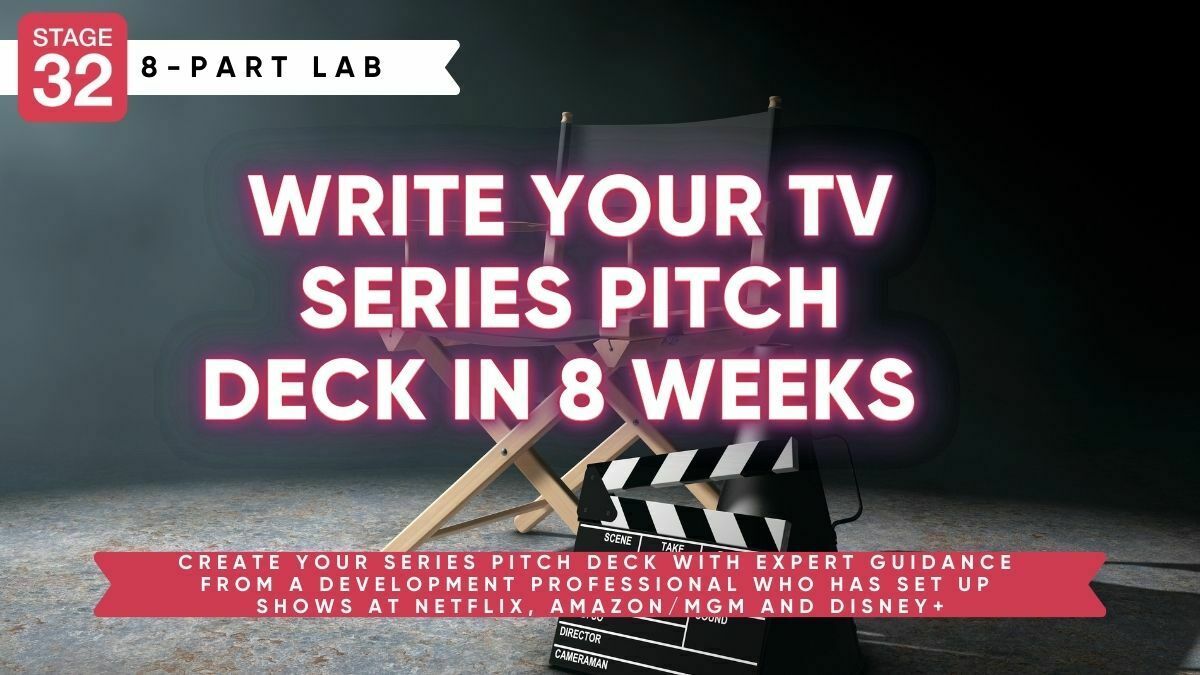I heard back from a S32 producer today (read and review) and I am very grateful and flattered for what they had to say and recommend. And if I couldn't have both, would I prefer a recommend writer or project? It's a unique thought process with, IMO, recommend writer being the preferred.
Admittedly, my mind has been stuck in pass/consider/recommend for a couple years without venturing much beyond that.
But what I hadn't thought about was what does a pass on a project really mean? A bad project? A great project they are passing on because it's not what their shop tends to work with? That's the enigma and part of what makes this such an adventure.
Write on!



4 people like this
Hi Matthew Kelcourse choosing a "recommend writer" is often can highlight your overall talent and versatility, opening doors to future projects. A pass on a project doesn't necessarily mean it's bad; it might just not align with the producer's current needs!
3 people like this
Hi Sam Rivera - that's what I was thinking and thought it might be a good discussion topic to see what other think :-)
4 people like this
A lot of execs also take the market into account when thinking about pass/consider/recommend for a project as well. For example, these days not a lot of mob comedies get made anymore (after a boon in the 90s), so sometimes your script may be fine, but those kinds of movies just aren't really happening like they used to be. Most execs are pretty plugged in to what's getting developed and selling across the town and at big film markets, so it's not always obvious what genres are hot/cold at different moments from the outside looking in. All you can do as a writer is keep plugging away and writing about what interests you at the moment. If you're ever trying to chase the market, be prepared for a Sisyphean task
4 people like this
how to contact a s32 producer?
3 people like this
Here's the link to Script Services, Alejandro Marello: www.stage32.com/scriptservices
1 person likes this
From my days reading scripts for companies, recommends & Meetings were the holy grails. Nobody was interested making sample submission specs to movies but the bosses were always interested meeting new & cheap writers they could hire to write company ideas. That's the main income source.
5 people like this
As many here have mentioned, Matthew Kelcourse, a pass could be for any number of reasons. More important are the notes you receive. Parse and apply where you feel applicable.
5 people like this
Always good advice, Richard "RB" Botto. In this case, the advice was "do not change a thing", so that was a bit easier. I also believe there's no such thing as "everybody/nobody", nor "all or none" in what is being sought and considered. Not in my experience, anyway.
6 people like this
Myself, I love great, critical coverage that is helpful. I have also received ample feedback that was far from helpful. Always a mish-mash, but put to task, I'd rather have a "love the script" with only a few notes than a lot of poor feedback. Just me... :-)
5 people like this
Can't do better than "Do not change a thing", Matthew Kelcourse. That's a massive win and should propel you to keep getting the work out there. Getting the script on point is half the battle, finding that proper fit is the other.
M LaVoie I disagree with zero guidance. It is very clear and there is full transparency who the execs are, what genres they specialize in and what company they work for. At that point, it's important for the write to know what that company produces including budget ranges.
An example, a writer recently got a double recommend from an exec, but the exec didn't go further which upset the writer greatly. Why wouldn't they want to take on the project. The answer was simple. The budget would easily be $50MM where the company the exec worked at specializes in films in the $1MM-$10MM budget range.
The good news, the writer got that double recommend which allows the Development Services and Success Teams to push that project through our lookbook and our individual reachouts to execs.
4 people like this
I think your thoughts on what a pass may mean are all subjective. It could mean that the company or person thought it was bad. It could mean that they loved it but don't have the resources to commit to it. It's hard not to take a pass personally as an artist. But don't stop writing. You'll pitch to the right person on the right day one of these days. But you miss 100 percent of the shots you don't take. Study and educate yourself but do not stop writing.
6 people like this
This is such an awesome question. It is very rare to get a "double recommend" - where the reader would recommend you as a writer and your script as a project that should be made. This was always really important to us at Stage 32 as it relates to our script coverage. Not only are you getting feedback from a working executive that you choose, they are also scoring your script from industry standards of pass/recommend/consider. Only 1% of our writers have gotten double recommends from our executives so what we do is collect the information about the script, writer & logline and send it to over 500 executives with our endorsement. It's led to meetings with CAA, 3 Arts, Verve, Broken Road, Whitewater Films, Cold Iron, Gidden Media and more. If anyone reading this isn't famiiar with our script coverage, just click "script services" on your top menu bar, then click "coverage" or "consulting" and you can choose an executive to read your script that works in your genre. It's complete transparency on who is reading your script. https://www.stage32.com/scriptservices/coverage
4 people like this
Love this Matthew Kelcourse and no matter what we keep grinding until we get that goal, touchdown, win, and bank deposit and recognition. Then Rinse & Repeat!
5 people like this
I second so much of what has been said here. Do NOT take a pass personally. SO many factors go into the thinking behind whether a buyer passes on your script (or not). Personally, I have passed on thousands of scripts in my career, and some were more difficult than others to pass on. It's never pleasant but you can only make so many! More often than not, the pass is not because they think your script is bad. As vague as it sounds, it just "wasn't for them", and that's really the truth. They might have liked the writing or even the concept, but maybe it just wasn't exactly what they're looking for at that time, or the classic "we have something similar", maybe it was just a tad out their genre mandate etc. The takeaway should be that a professional has read your script and if they liked, even if they passed on it, you are on their radar now as a writer. And if you receive a pass, don't go back and ask why and what you could change to make it more to their liking. They passed, move on. No amount of rewriting can make them reconsider. If someone ends up optioning your script, they will do so because they love THAT script, don't try and alter it or cram it into someone else's expectations.
5 people like this
Matthew Kelcourse as a fellow storyteller don't get discouraged by rejection and take it as a call to action. We storytellers have all the tools to make our own films at little to no cost. There are actors and crew nearby who are willing to work for that first credit. Our intended audiences are out there looking for new characters, new worlds, a new niche or a reimagining of a something Hollywood abandoned yesterday or decades ago as unprofitable. #Keepwriting.
5 people like this
Have you ever worked on a movie or tv show Matthew Kelcourse ? Put in the grind; 12-15 hour work days, unpacking & humping film gear, learning on-set. Thats how many of us met our circle of peers. Last short I worked on, Oscar Winner James Ivory showed up. Dude is like 85 years old and he's on set helping us. Good Luck!
5 people like this
"Take it as a call to action" - Love that, Paul Rivers. Reframing rejection changed the course of my screenwriting journey. It's a choice, a mindset. And it's in our control. Well said.
4 people like this
Matthew Kelcourse A lot of screenwriters here are submitting screenplays and if they get a pass they move on and hope they find some other producer that might want to option their screenplay. The odds of that happening are less than 1 in 5,000, which is a generous estimate. A screenplay is a screenwriter's calling card. If a producer is willing to read it then it then it did its job even if they pass on it. You should thank the producer and thank them again after you finish your next screenplay so they are the first to know about it. The first screenplay I optioned was to a producer who passed on two previous screenplays. Also, another thing you can try is to attach a director who has a lot of credits directing movies that are similar to the ones you are trying to sell. That way if you don’t have a track record you can use their credits and contents which would make your screenplay more valuable.
7 people like this
Good tips coming in from a number of good people. Let's tack on an epilogue: when someone says "no" - executive, director, talent, producer - then make sure the door is open so you can come back and submit another script! You'll be building a relationship(s). (Like Dan said above, a producer passed on two of his scripts, and then optioned on the third submission)
4 people like this
Your point is massively important, Lindbergh E Hollingsworth, and it's one that eludes many writers. Opening a door should be viewed as a massive success. Even if this script is a pass, the invitation to pitch or send others is a big deal. Further, what might not be a fit for one, might be for another. We've seen numerous successes here over the last 13 years where an exec passes on a project but sends the script to a colleague at another prod co where they might thing the material is a fit.
3 people like this
All great stuff. Hate to pull a Biden, but my father had a saying: don't burn your bridges, keep your footpath clean, and the gate slightly ajar. Translation? What they all said :-)
2 people like this
Grteat points Richard "RB" Botto & Matthew Kelcourse